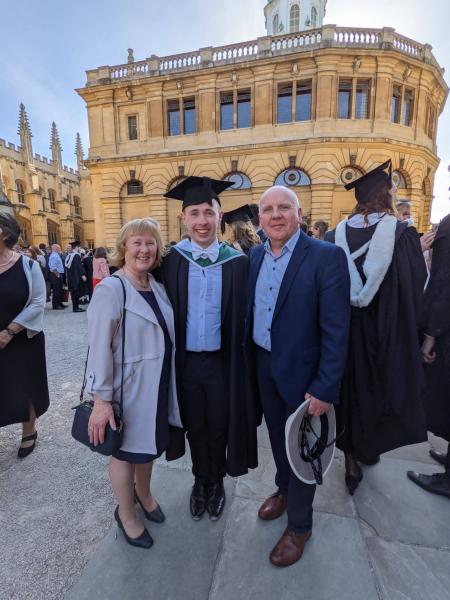
As one of the world’s first-designated ‘Cities of Literature’, Dublin boasts a profound literary heritage, with writers such as Joyce, Beckett and Wilde each hailing from the so-called ‘Fair City’. Nowadays, as Ireland’s bustling capital, the city plays home to diverse cultures and traditions, which, in a literary sense, stand reflected in the spirit of the prestigious Dublin Literary Award, bestowed annually on a non-English language author, and won, since its inception in 1996, by authors, including the late Javier Marías for Corazón tan blanco (1992). Dublin’s Instituto Cervantes, located at the heart of the city, close to Trinity College Dublin, plays a central role in highlighting the richness of Spanish language and Hispanic culture in Ireland whilst also forming part of a vibrant network of national cultural institutions across the capital, such as the Goethe-Institut or the Instituto Italiano di Cultura, responsible together for the promotion of shared aspects of European literary and cultural history in Ireland. Since leaving Oxford, whilst simultaneously considering doctoral study, I have volunteered as a ‘cultural collaborator’ with the Instituto Cervantes with a primary responsibility for the curation of an online blog on the Institute’s many cultural initiatives, most notably, its long-standing ‘Club de lectura’.
From its office at the city’s heart, the Instituto Cervantes Dublin places an important emphasis on encouraging the study of Spanish and Hispanic literatures for language-learners. Currently, the Instituto runs a monthly ‘Graded Book Club’ for newer Spanish learners alongside its long-standing ‘Club de lectura’ held monthly in its Dámaso Alonso Library. Named after the first Spanish-language translator of James Joyce’s Portrait of the Artist as a Young Man, the library celebrates the linguistic and cultural diversity of the Iberian and Hispanic worlds, marked by the notable presence of Basque, Galician and Catalan authors. In a similar manner, the Library pays homage to the breadth of ‘modern’ Irish literature such is its array of works by Ireland’s so-called ‘literary greats’ alongside collections associated with the traditionally marginalised ‘Irish’ or ‘Gaelic’ literature which now enjoys a cultural renaissance owing to its increased popularity amongst Ireland’s youth. Situated at the centre of Dublin’s ‘South Georgian Quarter’, amongst the streets and landmarks of Joyce’s Dubliners and Ulysses, the Instituto Cervantes Dublin acknowledges the shared modern literary heritage between Ireland and the Spanish-speaking world and the importance of assisting prospective Spanish-language learners by means of literary and cultural study.
Given this acknowledgement of linguistic and cultural diversity, the Library of the Instituto Cervantes Dublin, through its ‘Club de lectura’, plays a considerable role in introducing language-learners to the differing perspectives of nations and communities of the Spanish-speaking world by means of literary interrogation. Each year, in conjunction with Trinity College Dublin’s Centre for Literary and Cultural Translation, the Instituto hosts its flagship ISLA festival which celebrates and brings into dialogue the connections between Irish, Spanish and Latin American literatures through the prism of a common theme of social or cultural interest. On the theme of Spanish-language literature, the Instituto’s efforts strive to acknowledge both the connections within and between Modern Latin American and Spanish literatures, whilst also highlighting, through the study of issues raised by writers such as Fernanda Melchor or Juan Rulfo, the particular socio-historical circumstances and literary traditions of various Latin American societies. Interestingly, in recent times, the Instituto’s ‘Club de lectura’ has also turned its attention to the examination of texts translated to Spanish, including Viola Ardone’s Il treno dei bambini (2019) or Irene Solá’s Canto jo I la muntanya balla (2022). To this end, the Instituto remains committed to enabling its readers to explore different cultures and traditions as revealed through Hispanic and World literatures more generally.
Since joining the Instituto as a ‘cultural collaborator’ in 2020, I have really enjoyed sharing my views on important works of Modern Hispanic literature, drawing on my study of postcolonial and feminist theory at Oxford as well as my knowledge of issues of trauma and memory in post-Civil War literature in Spain, as developed under the guidance of Professor Daniela Omlor. In the context of the emergence of new authors (and new perspectives), particularly in Peninsular Spanish literature, as seen in the works of Irene Solá, Gabriela Ybarra or Elvira Navarro, I now relish the opportunity to broaden my knowledge of contemporary literary themes within Hispanic literature whilst also gaining an understanding of its breadth, more generally, particularly, through the Instituto’s monthly ‘Diálogos de literatura’ involving a public discussion between a celebrated Spanish-language author and a leading academic, held at the Dámaso Alonso Library. At present, as a non-academic working in an English-speaking environment, I find continued solace in drawing on my skills of literary analysis and cultural understanding, developed at Oxford, in connecting with new friends and promoting the Spanish language and its diverse literatures in Ireland.